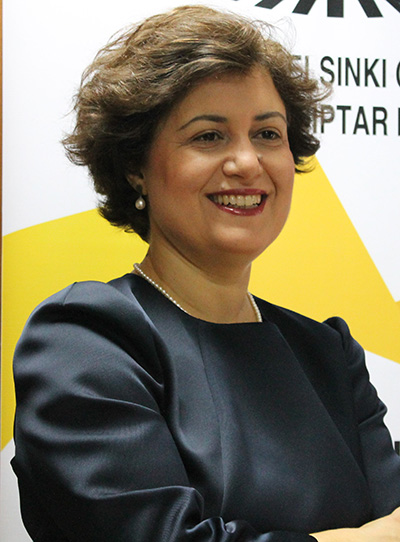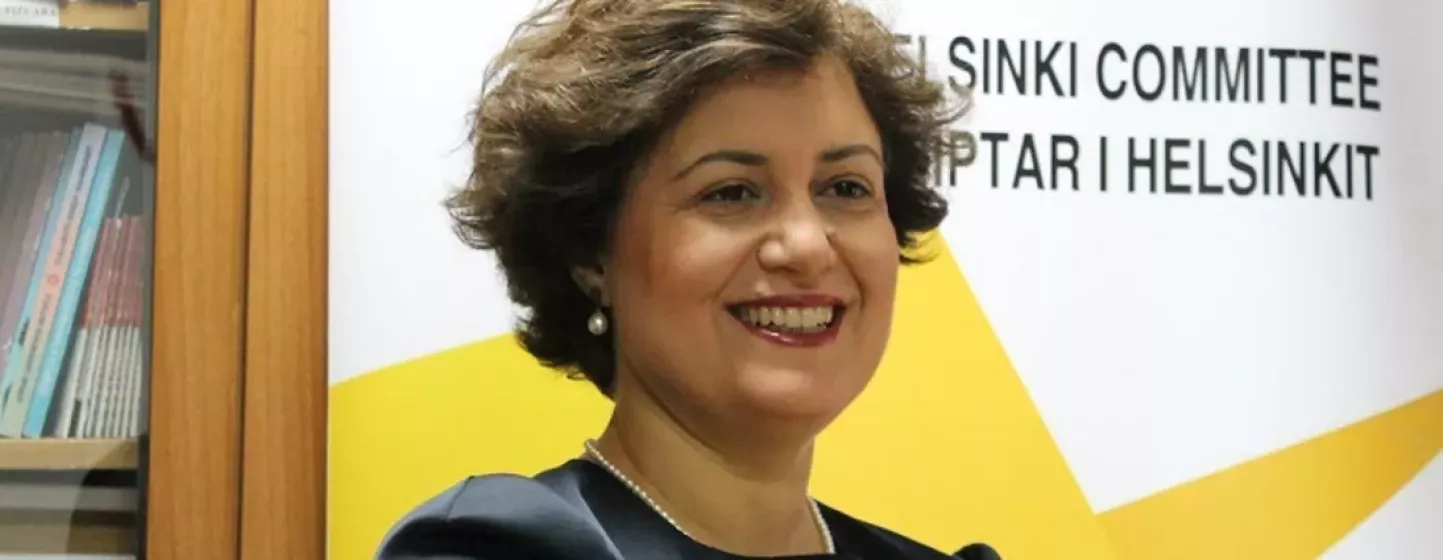Miriam Neziri Angoni: "I think, therefore I am"
Originally from Albania, Miriam Neziri Angoni quickly understood the importance of media literacy in the fight against propaganda and misinformation. As part of CFI's Balkans Voices project, she coordinated a number of activities in Albania, Bosnia and Herzegovina, Kosovo, North Macedonia, Montenegro and Serbia, particularly among young journalists, influencers and film students.
Interview by Emmanuel de Solère Stintzy.
How did your interest in media literacy come about and grow?
My involvement is linked to the fact that I grew up under a dictatorship in Albania. The Balkans have been the scene of bloody conflicts, fuelled by propaganda that benefited from the ignorance of a section of the population. This has strongly motivated me to fight back against disinformation through media literacy with a view to helping young people to develop critical thinking skills.
From the age of 4, my grandfather, who studied in Montpellier, taught me about French civilization. The phrase "I think therefore I am" (editor's note: a quote by French philosopher René Descartes in "Discourse on Method") has been at the forefront of everything I do ever since. Completing my higher education in France and Italy really helped me to become an active citizen committed to the campaign for peace, human rights and democracy. Fundamental values for my region of origin.
What role did you play in CFI's Balkans Voices project
I coordinated various activities, such as the training of fifteen trainers from the Balkans to lead workshops with young people, and the addition of fun educational tools in regional languages to an online platform. We also worked together with universities to organise masterclasses to help young journalists to use state-of-the-art methods thanks to support from French fact-checkers.
We also trained influencers from the region to communicate in an ethical and professional manner on social media. Last but not least, we worked with faculties of film in every Balkan country to provide training to around 15 students. Balkans Voices provided financial backing for a documentary and a short film, which were created by a team made up of talented individuals from different countries within the region.
What changes have you observed among the participants in this two-year project, which came to an end in 2022?
The young influencers have seen their audience grow. Those who benefited from mentoring have launched new initiatives. A young female influencer from North Macedonia developed her project looking at women and literature. A young Albanian woman was able to improve her Instagram campaigns with which she helps women to find work.
Before this project, young people developed their actions as communicators without any professional journalistic benchmarks. Sitting at the lower end of the media literacy and press freedom indices, the Balkans need to start teaching children information literacy as early as primary school and continue it through secondary school and university. In the digital age, artificial intelligence must become an ally for young people and journalists, allowing them to perform quick checks and deeper investigations. Technology and expertise must back up information and media literacy.

